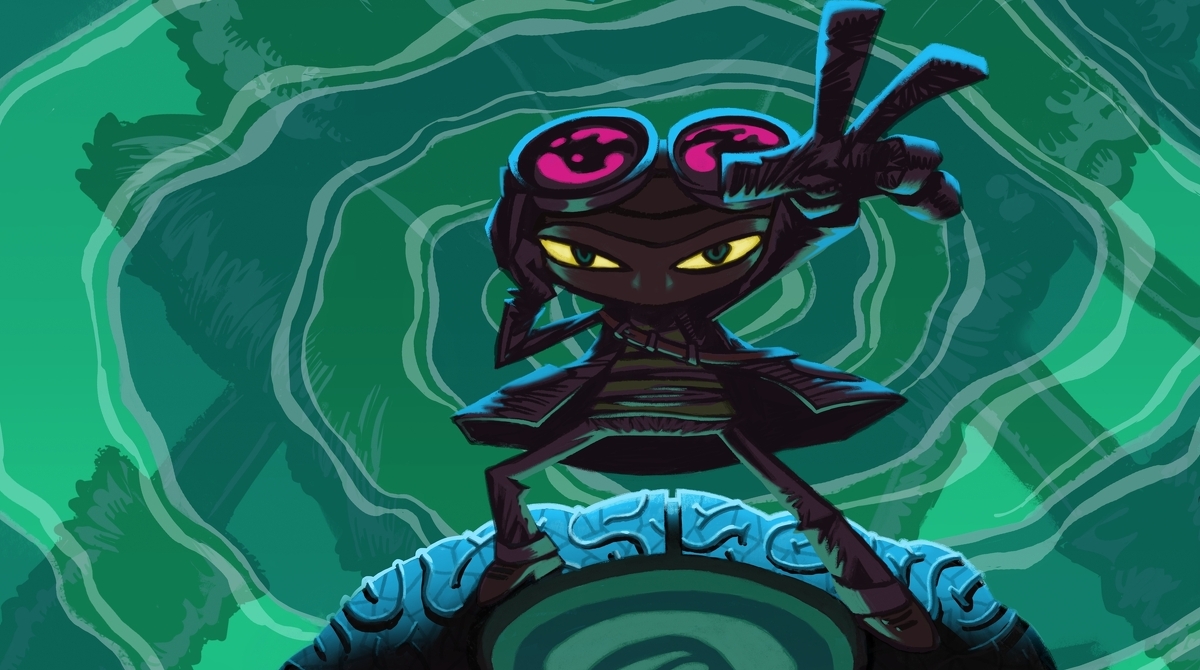
I played through the original Psychonauts properly for the first time this year. I've been trying to work out how it would feel to play it at release in 2005, at a horrible time in my life, long before I'd given any structured thought to things like trauma and depression. Would it have offered me any useful insight? I'm undecided. Psychonauts is a clever and caring game but it's hardly a coherent or clinical investigation of mental health, and nor does it claim to be. It's a witty and humanising reworking of clichés of madness and repression, a psychedelic 3D platformer in which you dive into brains and roam mental landscapes that range from Manchurian Candidate suburbia to Oedipal circuses of pulsing meat. With its twisty asylums and literal emotional baggage, it's far more surreal gothic comedy than educational fable. Still, I think 2005 me might have taken solace from its teachers: Sasha Nein and Milla Vodello and yes, even Coach Oleander, who place their all-too-fragile inner worlds at your disposal so that you can hone your skills as a budding psychic agent.
Rolling and bouncing around those brilliant stages, messing with Sasha's tightly-wound neural plumbing and visiting the house fire inside Milla's cerebral disco, I thought of how my own teachers had, in various ways, opened their minds to me, suffered my trampling questions and generally made themselves vulnerable so that I could learn. I don't want to suggest that this is everybody's experience of teaching, or being taught, or that there's no place in teaching for boundaries. But it's surely the kind of connection every teacher hopes to create, and plenty of game developers, too: here is the world of my experience. Spend time with me here and see what you can bring away. Having learned from these worlds, you're then in a position to restore them, helping the owner confront their personal demons and unpack buried truths. It's an idea carried forward into Psychonauts 2 – the same clever and caring game, but slicker, busier and with updated notions of mental health that reflect, not least, the crunch and burn-out of the original's development.
Psychonauts 2 begins just after the events of VR expandalone Rhombus of Ruin, with circus acrobat turned mind-diver Razputin Aquato joining the intern programme at Psychonauts HQ – an Epcot Centre-style hub where you'll find brains in hamster balls and a man haunted by visions of flying bacon. The first thing you do is hack the memories of one Dr Loboto, a character from the original who has links to a legendary psychic megavillain from decades past. The plot is about investigating said megavillain – who, shocker, may be more than a memory – and her relationship to the original founders of the Psychonauts, a collection of traumatised hippy Avengers whose brainscapes are all badly in need of a visit from the janitor.